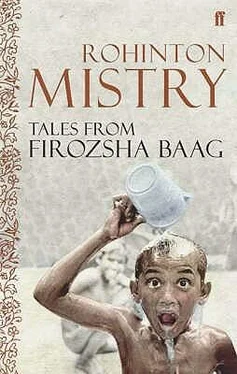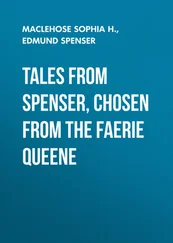Rohinton Mistry - Tales From Firozsha Baag
Здесь есть возможность читать онлайн «Rohinton Mistry - Tales From Firozsha Baag» весь текст электронной книги совершенно бесплатно (целиком полную версию без сокращений). В некоторых случаях можно слушать аудио, скачать через торрент в формате fb2 и присутствует краткое содержание. Год выпуска: 2006, Издательство: Faber & Faber, Жанр: Современная проза, на английском языке. Описание произведения, (предисловие) а так же отзывы посетителей доступны на портале библиотеки ЛибКат.
- Название:Tales From Firozsha Baag
- Автор:
- Издательство:Faber & Faber
- Жанр:
- Год:2006
- ISBN:нет данных
- Рейтинг книги:3 / 5. Голосов: 1
-
Избранное:Добавить в избранное
- Отзывы:
-
Ваша оценка:
- 60
- 1
- 2
- 3
- 4
- 5
Tales From Firozsha Baag: краткое содержание, описание и аннотация
Предлагаем к чтению аннотацию, описание, краткое содержание или предисловие (зависит от того, что написал сам автор книги «Tales From Firozsha Baag»). Если вы не нашли необходимую информацию о книге — напишите в комментариях, мы постараемся отыскать её.
Tales From Firozsha Baag — читать онлайн бесплатно полную книгу (весь текст) целиком
Ниже представлен текст книги, разбитый по страницам. Система сохранения места последней прочитанной страницы, позволяет с удобством читать онлайн бесплатно книгу «Tales From Firozsha Baag», без необходимости каждый раз заново искать на чём Вы остановились. Поставьте закладку, и сможете в любой момент перейти на страницу, на которой закончили чтение.
Интервал:
Закладка:
Now we’re back in Bombay, and Navjeet and I are working on a plan for our return. We’ve spoken to several reporters, and the work is getting much publicity. We’re also collecting fresh donations, so that when we go back we won’t fail for lack of funds.
Having read this far, I put down the letter for a moment. There you were, my brother, waging battles against corruption and evil, while I was watching sitcoms on my rented Granada TV. Or attending dinner parties at Parsi homes to listen to chit-chat about airlines and trinkets. And it was no use wishing that we had talked more to each other about our hopes and visions and dreams. I thought of our schooldays, trying to locate the point when the gulf had appeared between us. Did it grow bit by bit or suddenly happen one morning? I cannot remember, but it did throw everything into silence and secrecy.
The rest of the letter concerned Jamshed’s visit to Bombay six months ago:
I wish he’d stayed away, if not from Bombay then at least from me. At best, the time I spent with him was a waste. I expected that we would look at things differently, but was not prepared for the crassly materialistic boor that he’s turned into. To think he was my “best friend” in school.
No doubt he believes the highlight of his visit came when he took some of us to dinner at the Rendezvous — nothing but the most expensive, of course. It was a spectacle to surpass anything he’d done so far. He reminded us to eat and drink all we wanted without minding the prices and enjoy ourselves as much as we could, because we wouldn’t get such a chance again, at least, not until his next visit.
When the soup came he scolded the waiter that it was cold and sent it back. The rest of us sat silent and embarrassed. He looked at us nonchalantly, explaining that this was the only way to handle incompetence; Indians were too meek and docile, and should learn to stand up for their rights the way people do in the States.
We were supposed to be impressed by his performance, for we were in an expensive restaurant where only foreign tourists eat on the strength of their U.S. dollars. And here was one of our own, not intimidated within the walls of the five-star Taj Mahal Hotel. In our school-days we could only stand outside and watch the foreigners come and go, wondering what opulent secrets lay inside, what comforts these fair-skinned superior beings enjoyed. Here was one of our own showing us how to handle it all without feeling a trace of inferiority, and now we were ashamed of him.
We spent the evening watching Jamshed in disbelief, in silence, which he probably thought was due to the awesome splendour of our surroundings.
I was determined not to see him again, not even when he came to say goodbye on the day of his departure, and I don’t intend to meet him when he visits Bombay the next time …
As I finished reading, I felt that my brother had been as irritated by Jamshed’s presence as I had been by Jamshed’s letter six months ago. But I did not write this to Percy. After all, I was planning to be in Bombay in four or five months. We could talk then. In just four months I would complete two years in Canada — long enough a separation, I supposed with a naive pomposity, to have developed a lucidity of thought which I would carry back with me and bring to bear on all of India’s problems.
Soon it was time to go shopping for gifts. I packed chocolates, cheeses, jams, jellies, puddings, cake mixes, panty hose, stainless steel razor blades — all the items I used to see displayed in the stalls of the smugglers along Flora Fountain, always priced out of reach. I felt like one of those soldiers who, in wartime, accumulates strange things to use as currency for barter. What was I hoping to barter them for? Attention? Gratitude? Balm to soothe guilt or some other malady of the conscience? I wonder now. And I wonder more that I did not wonder then about it.
The suitcase I had come with proved insufficient. And although I bought a new one, an extra leather strap around each seemed wise, for they were both swelled to threatening dimensions.
Then, arms still sore from the typhoid and cholera inoculations, luggage bursting at the seams with a portable grocery store, and mind suffused with groundless optimism, I boarded the plane.
The aircraft was losing height in preparation for landing. The hard afternoon sun revealed the city I was coming back to after two years. When the plane had taken off two years ago, it had been in the dark of night, and all I saw from the sky through shaded and infected eyes were the airport lights of Santa Cruz. But now it was daytime, and I was not wearing dark glasses. I could see the parched land: brown, weary, and unhappy.
A few hours earlier the aircraft had made its scheduled landing in London, and the view from the air had been lush, everywhere green and hopeful. It enraged me as I contrasted it with what I was now seeing. Gone was the clearness with which I’d promised myself I would look at things. All that was left was a childish and helpless reaction. “It’s not fair!” I wanted to stamp my foot and shout, “it’s just not fair!”
Construction work was under way at the airport. The van transporting passengers from the aircraft to the terminal building passed improvised dwellings of corrugated metal, cardboard, packing crates, plastic sheets, even newspaper.
The van was reduced to a crawl in the construction zone. A few naked children emerged from the corrugated metal and cardboard and ran to keep up with us, screaming for money. When they came dangerously close to the van, the driver screamed back. On board was a group of four businessmen, and three of them tossed some change out the window. They sounded Australian. The fourth was the seasoned traveller, and the others hung on every word he said. He warned them, “If you try that when you’re on the street, you’ll create something like a bloody feeding frenzy of sharks.” The children fell far behind when the construction zone ended and the van picked up speed.
Bombay seemed dirtier than ever. I remembered what Jamshed had written in his letter, and how it had annoyed me, but now I couldn’t help thinking he was right. Hostility and tension seemed to be perpetually present in buses, shops, trains. It was disconcerting to discover I’d become unused to it. Now I knew what soldiers must experience in the trenches after a respite far behind the lines.
As if enacting a scene for my benefit with all the subtlety of a sixteenth-century morality play, a crowd clawed its way into a local train. All the players were there: Fate and Reality, and the latter’s offspring, the New Reality, and also Poverty and Hunger, Virtue and Vice, Apathy and Corruption.
The drama began when the train, Reality, rolled into the station. It was overcrowded because everyone wanted to get on it: Virtue, Vice, Apathy, Corruption, all of them. Someone, probably Poverty, dropped his plastic lunch bag amidst the stampede, nudged on by Fate. Then Reality rolled out of the station with a gnashing and clanking of its metal, leaving in its wake the New Reality. And someone else, probably Hunger, matter-of-factly picked up Poverty’s mangled lunch, dusted off a chapan which had slipped out of the trampled bag, and went his way. In all of this, was there a lesson for me? To trim my expectations and reactions to things, trim them down to the proper proportions?
I wasn’t sure, but when I missed my bus an old instinctive impulse returned: to dash after it, to leap and join the crowd already hanging from the door rail. In the old days I would have been off and running. I used to pride my agility at this manoeuvre. After all, during rush hour it was the only way to catch a bus, or you’d be left at the bus-stop with the old and the feeble.
Читать дальшеИнтервал:
Закладка:
Похожие книги на «Tales From Firozsha Baag»
Представляем Вашему вниманию похожие книги на «Tales From Firozsha Baag» списком для выбора. Мы отобрали схожую по названию и смыслу литературу в надежде предоставить читателям больше вариантов отыскать новые, интересные, ещё непрочитанные произведения.
Обсуждение, отзывы о книге «Tales From Firozsha Baag» и просто собственные мнения читателей. Оставьте ваши комментарии, напишите, что Вы думаете о произведении, его смысле или главных героях. Укажите что конкретно понравилось, а что нет, и почему Вы так считаете.












